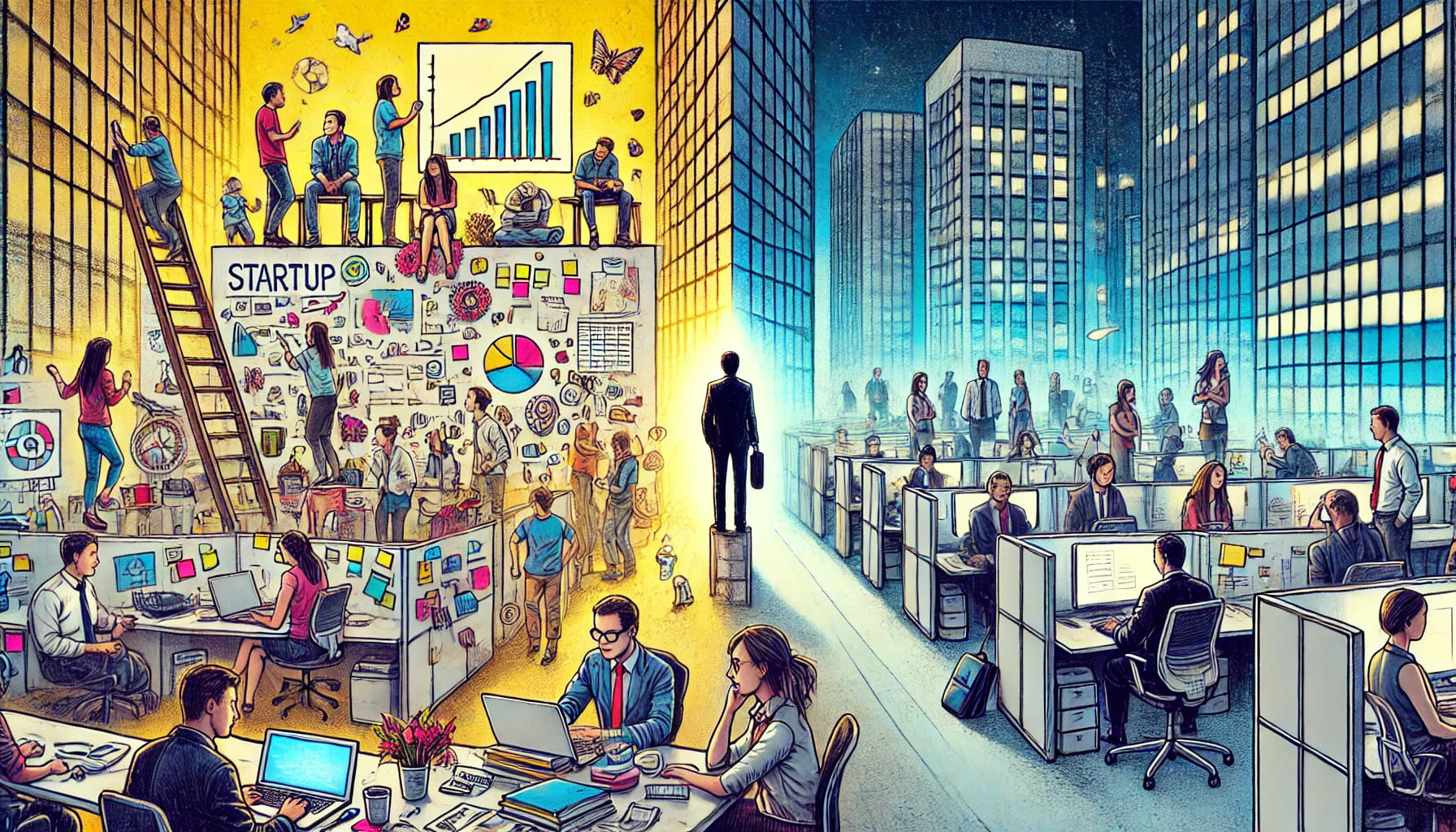From Startups to Giants: A Culture Shock I Wasn't Ready For 🏢⚡

For five glorious years, I was immersed in the startup world—where every day felt like a product hackathon, and every line of code had a purpose. Ownership wasn't just encouraged—it was the only way things moved forward. I wasn't "just a developer." I was part architect, part tester, part firefighter, part dreamer. And I loved it. ⚡
There's something addictive about startup energy. You're not just building features—you're building belief. You see your work come to life in real time, and that adrenaline rush of impact creates a beautiful feedback loop: the more you do, the more you want to do. That's how I grew—by doing, failing fast, fixing faster, and staying curious through it all.
Then I made a shift. I entered a large-scale corporate world. And over the last eight years, I've had the chance to learn how mature organizations think—about scale, about systems, about long-term impact. It was a massive change in tempo. Work moved through layers. Risk was calculated. Speed was replaced by stability. The rhythm was different, and I took time to find my footing.
And yes, I evolved. I learned to listen more, to align better, to think long-term. I understood how consistency beats chaos at scale. I learned to work with people, not just processes. These were essential lessons—ones that no startup would've ever had the time or patience to teach.
But there was one project that left a scar. I was working on a fast-paced product inside the MNC—a rare one. I built it end-to-end, shaped every line of code like it was mine (because it was). It felt like raising a baby—I nurtured it, debugged it at 3 AM, defended it in meetings. Then one day, a few folks got rolled into the project—smart in their own right, but they hadn't lived the product. They weren't aligned, they weren't careful. They began rewriting things based on vague theories and half-baked confidence. I couldn't stop them. I couldn't protect the codebase. And one evening, I cried. Truly mourned the loss of something I had poured myself into.
That experience broke something in me. From that point on, I shifted into paycheck mode. I started doing what was expected, not what was right. If someone planned badly, I followed. If quality dropped, I stayed silent. But that heartbreak taught me one crucial lesson: never hold back feelings in your personal projects. That's where your soul belongs. That's where your vision stays pure.
That said—I still miss the chaos. Startups gave me more exposure, more ownership, and faster feedback. That high of shipping fast and learning faster? It's addictive. It creates a loop: do → learn → improve → crave more.
Startups aren't just about speed—they're about trust. If you're in, you're all in. You get to touch more tech, explore more ideas, and wear more hats than any title can contain. And that kind of accelerated learning? It sticks. It builds you in ways that polished systems rarely can.
Today, I carry both worlds in me—the structure of scale and the spirit of a builder. I know how to navigate big orgs, but my heart still beats in startup rhythm. Give me a blank slate, a tough problem, and room to run—I'll show you what ownership looks like.
"Startups didn't just teach me how to code. They taught me how to care."
"Impact is my caffeine—and startups gave me an unlimited supply."
Final reflection: Careers aren't just about climbing—they're about alignment. Some of us don't just want to contribute—we want to build. For me, startups weren't a phase. They were a mirror. And I still see myself in them. 🚀